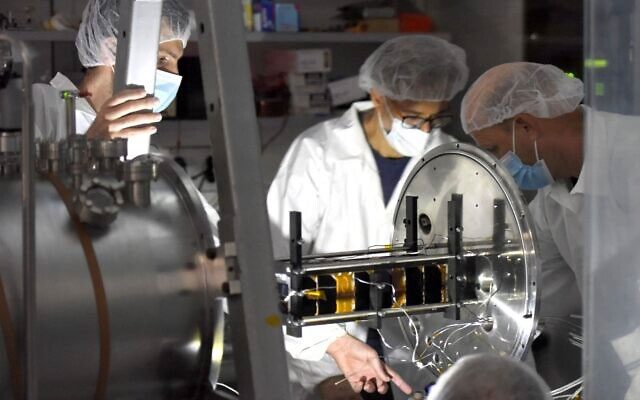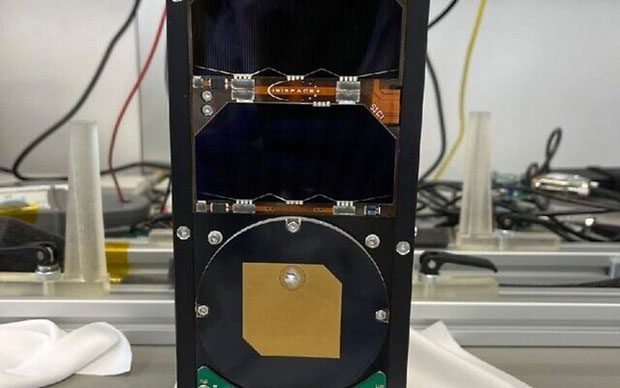A new nano satellite developed by researchers at Tel Aviv University (Israel) was launched into orbit by SpaceX’s Falcon 9 rocket from a launch site in California (USA) last Tuesday.
According to the researchers, the ultra-small nano satellite – measuring just 20 cm, named TAU-SAT3, is Israel’s first satellite designed to advance research in optical and quantum communication technology from space and represents “an important step towards demonstrating truly reliable quantum communication.“
Quantum communication is a method of transmitting information that utilizes quantum technology, allowing for rapid and secure data transmission. The advantage of quantum communication lies in its extremely high security, preventing unauthorized access to information and data. Quantum communication is also nearly “immune” to threats from hackers.

TAU-SAT1, the nano satellite developed by Tel Aviv University. (Photo: Tel Aviv University)
According to Professor Yaron Oz, head of the Quantum Science and Technology Center at Tel Aviv University, the emergence of quantum computers is believed to have the potential to “break today’s encryption algorithms.”
Consequently, data such as medical and personal financial records, emails, and WhatsApp messages could be leaked and stolen. At present, the world is investing millions of USD into research projects on “eavesdropping-proof quantum communication.”
Quantum computing leverages quantum mechanics technology to quickly solve problems that are too complex for classical computers by processing vast amounts of data.
“The principles of quantum mechanics allow for a secure encryption method that is considered unbreakable.”
“Whenever a malicious entity attempts to intercept a transmitted message, that message will immediately disappear.”

The satellite named TAU-SAT3, launched on January 3 from Cape Canaveral in Florida (USA). (Photo: Times of Israel)
At an altitude of 550 km (342 miles), the TAU-SAT3 satellite will orbit the Earth for approximately five years to conduct various scientific missions, while transmitting optical and radio communication signals back to a ground station set up on the roof of a building on the Tel Aviv University campus.
“This is the first ground station in Israel and one of very few worldwide capable of locating, tracking, and collecting data from a nano satellite, which is only the size of a pixel (equivalent to 0.26 mm) when viewed from Earth,” said Professor Noam Eliaz, head of the Fleischman Faculty of Engineering at Tel Aviv University.
The TAU-SAT3 satellite, developed in the Fleischman Faculty of Engineering, is equipped with an optical device only a few centimeters long. This satellite is powered by a battery produced by Epsilor, an Israeli company, which will provide energy for the entire operational duration of the satellite in orbit.
Professor Eliaz stated: “As the satellite passes over Israel, the device will emit light at different wavelengths, and the ground station’s telescope will detect this faint light, lock onto it, and track it.”
“However, when the optical device is facing the ground station, the antenna will point in a different direction.”
“As a result, a significant portion of the data may be lost. The innovation in this project is the ability to reconstruct lost data in real-time using intelligent signal processing algorithms developed at Tel Aviv University for communication systems installed in both the nano satellite and the ground station,” Professor Eliaz explained.
The nano satellite is part of a series of three satellites that Tel Aviv University has launched into orbit in less than three years, contributing to the global space revolution and opening up research opportunities for civil organizations and companies.





















































